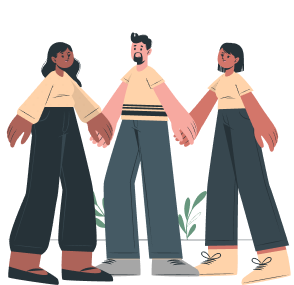The seasons are changing and with colder temperatures comes a change in accessible coping mechanisms for many individuals. Going for a walk, exercising outdoors, or even sitting in the park are just a few of the examples of activities that become impractical or at the very least, uncomfortable to engage in during the colder months. It becomes crucial to find and utilize cold weather friendly coping mechanisms before symptoms of mental health conditions worsen.After all, it’s much easier to find ways to cope before the onset of needing ways to cope.
Winter months in a city like New York can be especially isolating. If you have trouble convincing yourself to go out to visit friends in another neighborhood when the weather is warm,the odds are that you won’t be able to convince yourself to do so when the city streets are covered in slush. Finding ways to maintain connections with loved ones or strategies that can help you brave the cold can make a big difference. Make an effort to schedule phone calls or FaceTimes with friends, start a book club that can meet hybrid, or sign up to take a class in a subject matter you have been wanting to study but have not had the time to explore yet. Think about the activities you love to do and be creative about ways to make them winter friendly.
There are many mindfulness or meditation practices that can help any time of year but would be a great addition to your mental health coping mechanism reserves during winter. Both mindfulness and meditation have a lot of evidence supporting the connection between regularly practicing and improved mental health. Try starting your day with guided meditation as a way to feel grounded throughout the day. If guided meditation does not feel like something you can commit to doing regularly, maybe making a practice of listening to music mindfully or mindful eating can aid in improving your mental health. Finding space to practice yoga via an app or YouTube channel can also be a great activity geared towards mindfulness during the winter months.
For many individuals the winter and cold weather can lead to the development of Seasonal Affective Disorder (SAD). SAD is a type of depression that coincides with the changing of the seasons. While it is not clear why some individuals develop SAD, there is research on ways to lessen the impact on your mental health. Light therapy is one of the more studied treatments for SAD and there is evidence that it is an effective one. With light therapy,the individual sits in front of a box that shines a bright light designed to emulate the sun in the aim to refill the lack of sunshine during the winter months. A study quoted by the NIH reports that up to 70% patients feel relief from SAD symptoms after one week of treatment. If light therapy does not fit into your lifestyle another possible solution could be adjusting your sleep schedule to allow for the most natural light. Try waking up an hour or two earlier than typical and make an effort to soak up the morning light. Additionally, making sure to keep up with ongoing mental health treatment is critical. Be sure to bring any new or worsening symptoms up to your mental health team in order to coordinate on finding the best approach to improving mental health.
